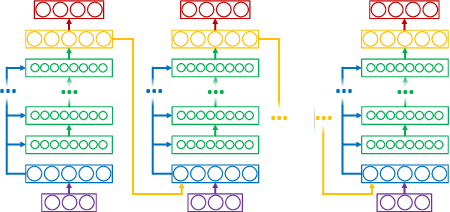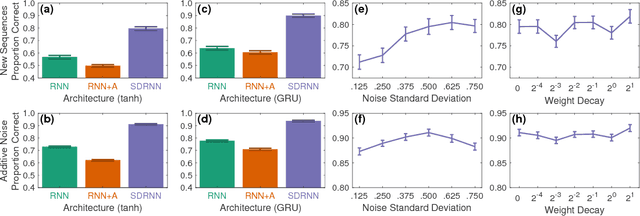State-Denoised Recurrent Neural Networks
Paper and Code
May 28, 2018



Recurrent neural networks (RNNs) are difficult to train on sequence processing tasks, not only because input noise may be amplified through feedback, but also because any inaccuracy in the weights has similar consequences as input noise. We describe a method for denoising the hidden state during training to achieve more robust representations thereby improving generalization performance. Attractor dynamics are incorporated into the hidden state to `clean up' representations at each step of a sequence. The attractor dynamics are trained through an auxillary denoising loss to recover previously experienced hidden states from noisy versions of those states. This state-denoised recurrent neural network {SDRNN} performs multiple steps of internal processing for each external sequence step. On a range of tasks, we show that the SDRNN outperforms a generic RNN as well as a variant of the SDRNN with attractor dynamics on the hidden state but without the auxillary loss. We argue that attractor dynamics---and corresponding connectivity constraints---are an essential component of the deep learning arsenal and should be invoked not only for recurrent networks but also for improving deep feedforward nets and intertask transfer.
 Add to Chrome
Add to Chrome Add to Firefox
Add to Firefox Add to Edge
Add to Edge